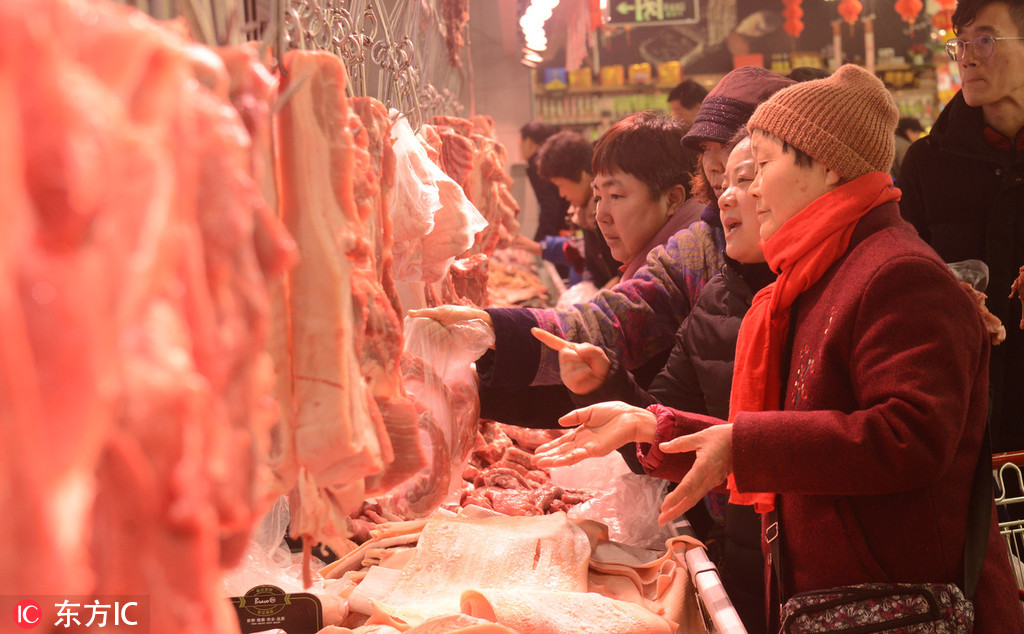Pork prices soften as hog production rises
By Zhang Yu in Shijiazhuang | chinadaily.com.cn | Updated: 2019-12-03 16:57

By the end of October, hog production in North China's Hebei province has seen a month-on-month growth for five consecutive periods, stabilizing the pork market and softening pork prices, authorities said.
In recent days, about 25,000 hogs have been provided to the market each day, among which 7,500 are sent to neighboring Beijing and Tianjin, according to the Hebei Provincial Department of Agriculture and Rural Affairs.
"The number of hogs raised for the pork market will switch from decreasing to increasing this year, and ensure a stable supply for pork," an official with the department was quoted as saying in a report by Hebei Daily, a local newspaper.
According to the department, several giant hog producers will build new hog production bases in the province. Construction of one of the bases has been underway since October in the province's capital city Shijiazhuang. It will have an annual production capacity of 500,000 hogs.
The province will invest about 10 billion yuan ($1.4 billion) in a total of 450 big hog production bases, building new ones and upgrading old ones, which all told will lead to an estimated increase of 2.6 million hogs each year, the report said.
From Nov 18 to 24, the average retail pork price in the province was 55.57 yuan (about $7.89) per kilogram, down 3.72 percent week-on-week, according to statistics from the Hebei Provincial Department of Commerce.
The price drops come as the government has taken multiple measures to boost supply, including measures to restore hog production, the department was quoted as saying by Hebei Daily.
The Ministry of Agriculture and Rural Affairs has urged related departments to put great emphasis on restoring hog production and take various measures to ensure pork supply and stabilize pork prices for the coming New Year and Spring Festival holidays, Xinhua News Agency reported.
Prices of pork, a staple meat in China, have been soaring in recent months, mainly affected by African swine fever and cyclical factors, Xinhua said.
Gao Zhishun contributed to the story.
























